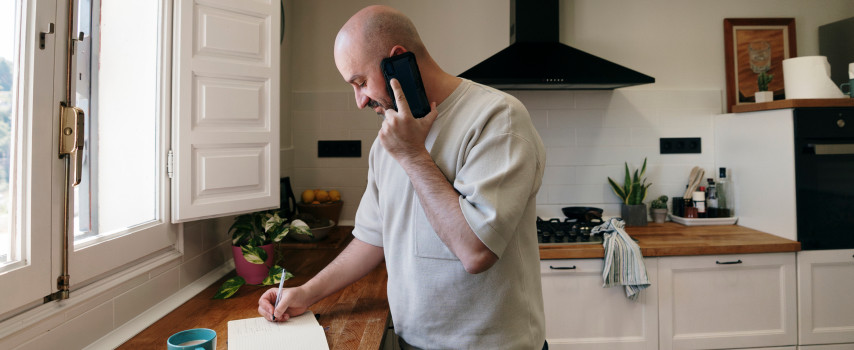What to do in an earthquake while travelling
Has an earthquake shaken up your dream getaway? We are here to help you stay safer, and support you through this worrying time. Here’s how.

Source: Getty
Have news headlines about earthquakes in holiday hotspots got you feeling uneasy? Or maybe you’ve just felt a tremor mid-holiday and want to know what to do in an earthquake?
If you are travelling to a country prone to earthquakes it pays to have a backpack with some key essentials ready to go. The backpack should always be in arms reach, even when you are sleeping, and it should include as a minimum a torch, food, water, back up battery supply for your phone as well as your travel documents. If you are inside during an earthquake wait until the shaking subsides then move outside into an open area in case of aftershocks. Beware of things falling off buildings or buildings collapsing into the street. During the tremor it is best to seek shelter in a doorway, under a desk, bed or even in the bath should the roof or ceiling be impacted.
If you’ve got our Cover-More app and you’ve shared your location, our assistance team may even reach out to you to see if you need further assistance. We’re always looking out for our travellers, so if a big event – like an earthquake – strikes, we’ll check if anyone’s in the area and, if so, see if they need help.
If you need our help, you can call us anytime – our 24/7 assistance team can talk you through how to get to safety, help you find medical support and more.
Rodger Cook, Cover-More's General Manager of Global Security.
Did you know earthquakes are more likely in some regions of the world? Just like volcanic eruptions, earthquakes happen more often in the ‘ring of fire’ – where the Earth’s plates meet. This includes places like New Zealand, the west coast of the US, Japan, Indonesia and Chile. There are some spots in Europe where earthquakes can happen too, like Greece, Italy, Iceland and more.
Now, it would be silly to avoid these countries altogether – they’re some of the most beautiful (and fun!) places in the world! But, it’s smart to know about earthquake safety – and what to do after an earthquake – before you set off on holidays.
So, here are our travel safety tips for what to do when they is an earthquake nearby, plus how we can lend a hand if you’re in this situation.
Do you need help with an earthquake-related situation right now?
Our 24/7 emergency assistance team is standing by. Here’s how to reach us fast:
- Tap the assistance button in our Cover-More app.
- Call +61 2 8907 5619 from anywhere in the world.
Here’s what to do in an earthquake during your holiday:
- Find a safe spot to wait out the earthquake.
- Signal or call for help.
- Call our emergency assistance team 24/7.
- Keep the documents you need to make a claim.

Source: Getty
Here are our earthquake safety tips.
Step 1: Find a safe spot to wait out the earthquake
It might sound odd, but the safest spot to wait out an earthquake is an open space away from falling debris and buildings that could collapse. If you can, get down on the ground and stay there until the shaking stops. We know it can be scary, but try your best to stay calm.
Are you in a car? If so, pull over away from bridges, trees or falling debris. Stay inside the car until it’s over.
If you’re indoors, stay put. Try to lie on the ground, and cover your head and neck. Or, if you can, get under a sturdy table or crouch by an internal wall. Don’t use lifts – they’re super dangerous during earthquakes.
Good to know: It’s best to stay away from windows in case of shattering glass. The same goes for heavy furniture that could fall, such as shelves or wall cabinets. Stay inside until the shaking stops.
Step 2: Signal or call for help
When the shaking stops, check yourself and others for injuries. Then, do your best to get help – especially if you or anyone with you is injured.
Calling emergency services will probably be your best bet. But, if the phone lines and internet are down, signal and call for help by shouting, waving, using torches, or anything you can, to get the attention of rescue teams.
Step 3: Contact emergency services and our emergency assistance team
Once you can use a phone, it’s best get in touch with local emergency services right away. They’ll be able to tell you what to do next.
If you need help, you can also call our 24/7 emergency assistance team as soon as it’s safe. We can help you sort out evacuation if it’s not safe to stay in the area, and make sure you get medical treatment if you’ve been injured.
Good to know: You can lean on us, whenever you need us during this trying time. Whether you just want to hear a reassuring voice because you’re feeling (understandably!) anxious, or you need emergency help or medical treatment fast, tap the assistance icon on our Cover-More app. Or, you can call +61 2 8907 5619 from anywhere in the world.
Step 4: Keep the documents you need to make a claim
You might not think about it in all the confusion of getting to safety. But, if you want to make an insurance claim relating to the earthquake, it’s important to hold on to receipts.
For example, maybe you had to find a new place to stay, rent a car to leave the area, buy new flights or train tickets or replace your damaged or lost luggage. Our Additional Expenses cover may kick in if you’re caught up in an unexpected natural disaster and our luggage cover is there if something does happen to your items. This means you might be able to get back some of your unplanned expenses relating to the earthquake. You can read our PDS to find out more about this.
If you have any questions, jump on a call with our customer service team on 1300 72 88 22. And, don’t forget to file your claim within 60 days of getting home. If you need help with this, ring our claims team on 1300 36 26 44.
The more you know, the less you need to worry
Here are more ways we can be there for you if your travels take an unexpected turn.

What do I do if I need to go to hospital on holiday?
Don’t stress – we’re here to help get you hospital care and we can lend a hand with the bills once you’re better.

What do I do if I lose, forget or run out of my medication?
It’s all good – our 24/7 emergency assistance team can help get you sorted with a new prescription.

What do I do if I need to see a doctor overseas?
No need to worry – we can guide you through getting the medical help you need.
Do you want fast travel advice and handy tips at the tap of a button?
Our Cover-More app gives you 24/7 access to travel help, safety alerts and more. Plus, you can use it to buy travel insurance and get discounts for fun travel stuff. Genius!
How travel insurance can help you with the (not so fun) surprise stuff
While you have fun on your trip, we’re here for what you can’t plan for.
Amendment and Cancellation Costs
Your holiday may not go exactly to plan. This cover can help with the unexpected.
Lost or Stolen Money
We won't let the loss of your wallet stop your holiday in its tracks.
Overseas Medical and Dental Emergency
You may have one less thing to worry about if you’re sick or injured overseas.
Limits, sub-limits, conditions and exclusions apply.
Take off with less worries
Pack our travel insurance and we’ll be a shoulder to lean on when you need one most.